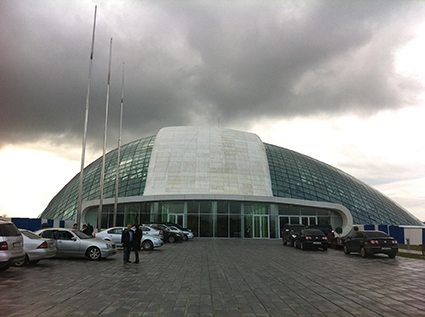Do We Now Have a Better Parliament?
OPED
The now almost bygone 2016 parliamentary elections in Georgia have gobbled up tons of money, depleted hardly ticking-by electoral energy and consumed time, which is never sufficient and productive enough, to create an adequate amount of gross domestic product for our future survival.
And the result is not overwhelmingly fortunate– many good and wise people were left outside Parliament’s weighty and meaningful walls, thus immobilized and rendered impotent to contribute further to productive legislature in the country.
Why should we consider the entire effort as optimal as it is thought to be in its dramatic finale? And most significantly and curiously, has the nation received a better legislative body, the wisdom and effectuality of which will guarantee that Georgia continues walking the right walk to prospective development?
Most people say that this election was one of the best in history, judging by participation, discipline, vote giving and counting, ballot handling, psychological climate, behavioral pattern, negligent number of excesses, observer appreciation, international evaluation, public attitude and governmental professionalism.
This would sound highly satisfactory for any civilized country with all democratic values in place to guarantee the fairness of the process and the quality of the consequence. Isn’t this a real triumph of representative democracy?
But the question is, whether the devil is indeed as snow-white as it is painted? It seems strange that we are formally so closely approximated to giving birth to a bipartisan political system but so distanced from it by content. The two-party electoral system takes much more in the introduction than we can provide for at this time. To function effectively, as it does, for instance, in the USA, the two-party system needs to be developed against a background of two confrontational ideologies that people are ready to accept, as it is in America with the liberalism of democrats and the conservatism of republicans.
The people of Georgia have definitely voted and expressed their political faith with good will and reasonable judgment, having used slightly reserved enthusiasm, though, when making a final decision at the ballot-box. A vote is nothing without relevant electoral education and clear-cut political philosophy. Unless a vote giver knows exactly why he or she wants to give that vote, no electoral process can produce a satisfactory representation.
Now that the elections are finished and gone into a four-year hibernation, nobody can say until the end of those four years whether we have received a better parliament or not because we currently have the same powers with faintly changed faces, the same linguistics, same style, same everything. . .
Who knows, this could in fact work a little better, but healthier it would have been to see several political forces forging the national fate in reasonable confrontation on the floor. It might at least have been more interesting to listen to hot and prudent debates in the famous arena.
Personally, I cringed to learn that some truly knowledgeable, well-weathered and sharp-thinking Georgian politicians with extremely valuable skills and experience found themselves only at the doorstep of the big glassy parliament building, with broken hearts, teary eyes, too frustrated for further politicking. They could have honed together the main spear of national politics, pointed it at a good economy and wholeness of the country.
All right, let’s stop crying over spilled milk and think of making better of what we actually have. Nothing will help more than the model of parliament, based on the never-tried-in-Georgia wisdom of ‘deeds-not-words’. If all the new boys and girls of the new law-making citadel are by any sacred chance prepared to listen to this indispensable wisdom, then the new trivially built talking-house of Georgia might really douse the fire of doubts, indignation and dissatisfaction that we still hearing around. Otherwise, we are doing OK.
Nugzar B. Ruhadze












